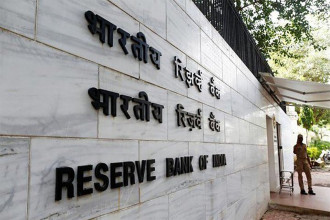
TOKYO: Japan's economic growth slowed sharply last year, official data showed on Monday, although the rate for the fourth quarter exceeded expectations. The figures come as Japanese companies worry about the impact of US President Donald Trump's protectionist trade policies, including import tariffs, on the world's fourth-largest economy.
Gross domestic product expanded by 0.1% in 2024, a significant drop from 1.5% the previous year, the data showed. However, the figures for October-December were more positive. Quarter-on-quarter growth accelerated to 0.7%, up from 0.4% in July-September, when a "megaquake" alert and one of the fiercest typhoons in decades dampened activity. The fourth-quarter figure was also more than double market expectations of 0.3% growth.
"On the surface, Japanese GDP growth in the final stretch of 2024 looks like a turning point," said Stefan Angrick of Moody's Analytics. "But don't break out the champagne just yet. Japan's preliminary GDP figures are notoriously choppy, and sizeable revisions are common," he warned. "The upbeat headline figure masks a domestic economy still stuck in the mud. Consumption is weak as pay gains have lagged behind inflation for the better part of three years," Angrick said. "And given the worsening outlook for global trade, Japan won't be able to rely on exports to pick up the slack in 2025."
Trump said last week that he planned to unveil tariffs on imported cars from around 2nd April, adding to a cascade of levies he has threatened since taking office.
Ahead of the latest GDP data, the Daiwa Institute of Research said, "various growth factors are seen, including normalisation of production for motor vehicles." "A strong appetite for capex spending on the part of corporations, and a comeback for inbound consumption" were also positive factors, the institute said in a report.
This time last year, Germany overtook Japan as the world's third-biggest economy, with India projected to leapfrog both later this decade. The change in positions primarily reflected the sharp fall in the yen against the dollar, analysts said at the time.
In January, the Bank of Japan raised interest rates again—having done so in March for the first time in 17 years—and signalled more hikes to come. The move, which left borrowing costs at the highest level since 2008, was also underpinned by "steadily" rising wages and financial markets being "stable on the whole," the bank said.
Even as other central banks raised borrowing costs in recent years, the BoJ had remained an outlier. But it finally lifted rates above zero in March, signalling a move away from policies designed to counter Japan's "lost decades" of economic stagnation and static or falling prices.
Capital Economics said in a note on Monday that "even though the jump in Q4 GDP wasn't broad-based, it supports our view that the Bank of Japan will tighten policy more aggressively this year than most anticipate."
By RSS/AFP






